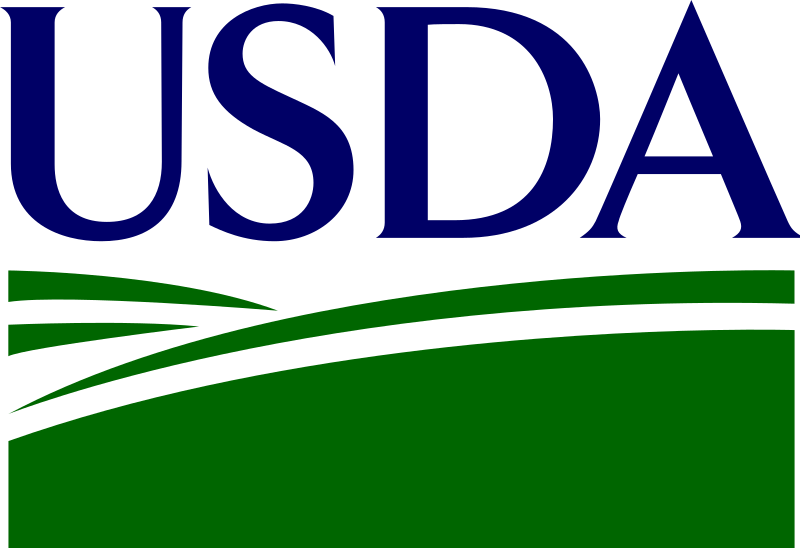
22 Jan After more than a year of review, the USDA has opened a 60-day comment period on an organic check-off program. Here’s what organic stakeholders need to know about this unique program.
“After more than a year of review, the USDA has opened a 60-day comment period on an organic check-off program. Here’s what organic stakeholders need to know about this unique program.”
(article originally published and written by New Hope Network)
The beef industry has one. The dairy industry has one. And possibly, the organic industry will have one, too.
Today the USDA announced that a proposal for a national organic check-off program will go live on the Federal Register. The proposal, titled the Generic Research and Promotion Order for Organic, or GRO Organic, will be open for comments until March 20.
Check-off programs collect money through producers of a specific agricultural commodity and use the funds to finance programs that will elevate the entire industry, including research, consumer education, and marketing and advertising. Far-reaching campaigns, like “Got Milk?” and “Beef. It’s What’s For Dinner,” are popular examples of how check-offs can be implemented.
It’s been a long wait for the Organic Trade Association, which originally submitted the check-off proposal back in May 2015. “OTA led the drive for this check-off because the organic industry is at a critical point,” said Laura Batcha, CEO and executive director of OTA, in a statement. “This organic check-off will provide research and key tools to encourage more farmers to go organic and help all organic farmers be more successful. It will educate consumers in a positive way about what that organic seal really means. For the benefit of all of us, this proactive program will further the success of organic agriculture for the long term.”
But not everyone is a fan of check-offs. The website No Organic Check-Off has aggregated input from organic farmers and producers that oppose the program, citing that the check-off would be just another tax on farmers and that it places too many restrictions on how “organic” can be marketed. For example, in a 2015 NPR interview, Jason Condon, owner of the Lafayette, Colorado-based Isabelle Farm, expressed that organic check-offs don’t talk to his target market—local restaurants, grocery stores and neighbors who participate in his farm’s CSA. Rather, the check-off would promote organic agriculture nationally.
But before submitting its proposal, the OTA did its due diligence in gauging check-off acceptance by conducting thousands of organic stakeholder surveys across the supply chain, from farmers to distributors to brands. It found that “twice as many certified operators supported the establishment of an organic check-off program as opposed,” according to a press release.
While marketing and consumer education programs will certainly be baked into the organic check-off to help communicate the value of the organic certification, and therefore maintain organic’s premium, funding for long-term organic research will be an instrumental part of the program. The demand for organic products continues to grow. Total organic product sales grew a whopping 11 percent in 2015. Bolstering research—and farmer access to research—will be a vital component of continued organic progress.
“It’s time for organic stakeholders to invest back in our movement—to fund research to help organic farmers, to create and initiate projects to nurture new organic farmers,” said Melissa Hughes, director of governmental affairs for Organic Valley. “An organic check-off will allow us to speak to the American consumer in a strong and unified voice.”
A unique model
One distinctive aspect of the proposed check-off program is its voluntary option for small-scale organic farmers, producers and manufacturers, defined as those with revenue under $250,000 a year. Such a provision helps protect small farmers from undue costs associated with growing. Also unique: While other agricultural check-off programs involve specific commodities (one for eggs, one for soybeans, one for beef, etc.) the organic program would treat organic like a commodity. So a farm that grew organic soybeans, organic wheat and organic eggs would benefit from the same check-off.
Organic farming is hard, regardless of the size of your farm. There are huge operating costs, which include labor and equipment maintenance. Adding another cost may not seem attractive. But relatively speaking, the check-off assessment is affordable. Organic stakeholders would pay one-tenth of 1 percent of net organic sales per year. For example, there would be a $1,000 assessment for $1 million in net organic sales, says OTA.
The burden of the check-off program would not be limited just to farmers. Every player netting over $250K along the organic supply chain—farmers, handlers, food makers, distributors and organic CPG brands—would be required to participate. Assessments would also be earned for imports of certified organic products, paid for by the importer. It’s estimated that the check-off would garner $30 million per year—a boon to organic’s growth.
The program would not be set in stone. OTA’s proposal dictates that the check-off be evaluated every seven years to decide whether to continue to the program.
Brands on board?
Thanks to consumer zeal and continuing research about the benefits of organic ag, the industry is continually gaining steam. But brands are feeling squeezed to secure a stable supply of consciously grown ingredients. The demand for organic ingredients currently outweighs the U.S. domestic supply, causing us to import organic foods from other countries. While in 2013 the value of United States organic exports fetched $513 million, the U.S. imported $1.4 billion worth of organic ingredients—which doesn’t necessarily benefit rural American communities.
Myriad organic brands believe that the check-off program would assuage insufficient domestic organic supply. “It would encourage more farmers to grow organic ingredients, manufacturers to launch organic products and give existing organic companies, like Late July, the help we desperately need to level the playing field with our non-organic competitors,” says Nicole Dawes, founder and CEO of Late July Snacks.
Other organic companies point out that a check-off would also clear up consumer confusion over the intricacies of organic—that the seal is a stringent governmental certification and that it inherently means non-GMO. “We organic businesses simply can’t afford this confusion,” says Gary Hirshberg, cofounder and chairman of Stonyfield Farm. “An organic check-off would enable the entire sector to benefit from promotion and research programs that provide consumer education, on-farm and regional research solutions, and ultimately, increase the number of organic farmers.”
Are you an interested in providing feedback on the check-off? Here’s how to comment on the proposal—and make sure to do so by March 20.


